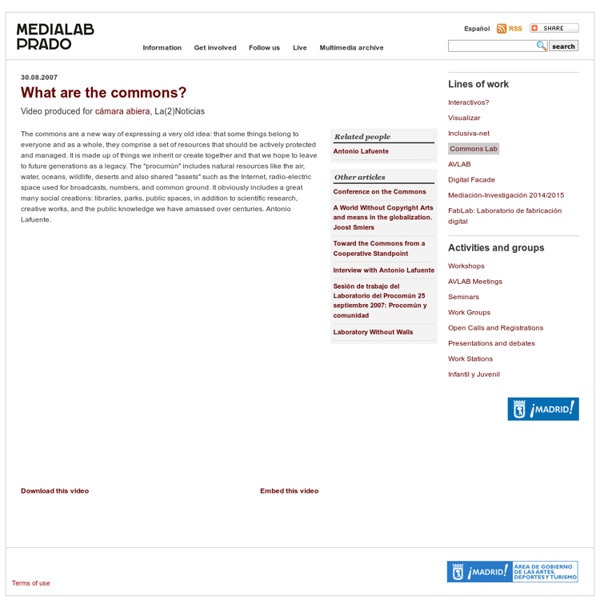



Crowdsourcing Crowdsourcing is a sourcing model in which individuals or organizations obtain goods and services. These services include ideas and finances, from a large, relatively open and often rapidly-evolving group of internet users; it divides work between participants to achieve a cumulative result. The word crowdsourcing itself is a portmanteau of crowd and outsourcing, and was coined in 2005.[1][2][3][4] As a mode of sourcing, crowdsourcing existed prior to the digital age (i.e. There are major differences between crowdsourcing and outsourcing. Some forms of crowdsourcing, such as in "idea competitions" or "innovation contests" provide ways for organizations to learn beyond the "base of minds" provided by their employees (e.g. Definitions[edit] The term "crowdsourcing" was coined in 2005 by Jeff Howe and Mark Robinson, editors at Wired, to describe how businesses were using the Internet to "outsource work to the crowd",[1] which quickly led to the portmanteau "crowdsourcing." Examples[edit]
educafebilbao The Factory of the Common Crowd funding Crowdfunding is the practice of funding a project or venture by raising monetary contributions from a large number of people, typically via the internet.[1] One early-stage equity expert described it as “the practice of raising funds from two or more people over the internet towards a common Service, Project, Product, Investment, Cause, and Experience, or SPPICE.”[2] The crowdfunding model is fueled by three types of actors: the project initiator who proposes the idea and/or project to be funded; individuals or groups who support the idea; and a moderating organization (the "platform") that brings the parties together to launch the idea.[3] In 2013, the crowdfunding industry grew to be over $5.1 billion worldwide.[4] History[edit] Types[edit] The Crowdfunding Centre's May 2014 report identified the existence of two primary types of crowdfunding: Rewards-based[edit] Equity[edit] Debt-based[edit] Litigation[edit] Charity[edit] Role of the crowd[edit] Crowdfunding platforms[edit] Origins[edit] Press
Buena práctica, redes sociales en el aula Avanzando en #REDucación os presento una buena práctica, a mi parecer, de la incorporación de las redes sociales en el aula, las experiencias de dos profesoras de Lengua Castellana y Literatura (Piedad Rodríguez y Francisca Sánchez) narrradas y compartidas en su blog Al Borde de la Lengua (que sigo y he incorporado a mi PLE). En Al Borde de la Lengua encontramos una pestaña titulada Redes Sociales en la que comparten las actividades en las que han incorporado las rrss a su área, siendo las rrss fuentes de información, herramienta de trabajo, de comunicación, espacio colaborativo de aprendizaje, etc.
The commons This article is about the term "commons" in political economics. It is not to be confused with common land. The commons is the cultural and natural resources accessible to all members of a society, including natural materials such as air, water, and a habitable earth. Definition and modern use[edit] The definition from the Digital Library of the Commons is; "the commons is a general term for shared resources in which each stakeholder has an equal interest".[1] The term "commons" derives from the traditional English legal term for common land, which are also known as "commons", and was popularised in the modern sense as a shared resource term by the ecologist Garrett Hardin in an influential 1968 article called The Tragedy of the Commons. Types of commons[edit] Environmental[edit] The examples below illustrate types of environmental commons. European land use[edit] Main article: Common land Mongolian grasslands[edit] Lobster fishery of Maine[edit] Community forests in Nepal[edit] See also[edit]
Crónica de #BBPPCITA 2015 Tras mi paso por el IV Encuentro de Buenas Prácticas en la educación el pasado fin de semana, no tengo más que palabras de agradecimiento a la organización por el estupendo y acogedor recibimiento en una reunión que se sale de cualquier expectativa. Allí, un fin de semana, muchos docentes enredados e implicados nos vimos las caras después de un tiempo conociéndonos a través de las redes. También el reencuentro con amigos que ves en contadas ocasiones, en estas en donde tu red de aprendizaje crece a pasos agigantados en un intento por mejorar la educación, los aprendizajes y cambiar el mundo. El sábado 14 comenzó con importantes ponencias sobre diferentes metodologías activas a cargo de grandes maestros que nos enseñaron que es posible acercar al aula otra realidad lejos del fiel seguimiento de libros de texto, y donde definitivamente los estudiantes tenían la sartén por el mango en cuanto a capacidad para protagonizar su propio camino de aprendizaje. Por un lado Manuel J. Continuaba M.
13 tips para usar Instagram en tu empresa Instagram es la red social que te permite compartir fotos (y ahora vídeos) con tus seguidores. Esa imagen puede ser utilizada no solo en Instagram sino en todos los perfiles que tu marca posea en otras redes sociales como Twitter y Facebook. Ya que puedes compartirla de manera simultáneamente en ambas redes. Te compartimos 13 tips para que conozcas cómo utilizar de manera efectiva esta red social como una herramienta para construir tu marca. 1. 2. 3.Hashtags. 4. 5.Establece el perfil de tus seguidores. 6.Coordinación con tus otras redes sociales. 7.Piensa estratégicamente sobre tus post. 8.Elige bien el nombre de tu usuario. Oreo es una de las marcas que sabe utilizar muy bien su perfil de Instagram, con juegos, fotos del proceso de hacer las galletas, contenido de los usuarios, etc. 9. 10. 11.Promueve la cultura de tu marca. 12.Llamada a la acción. 13.